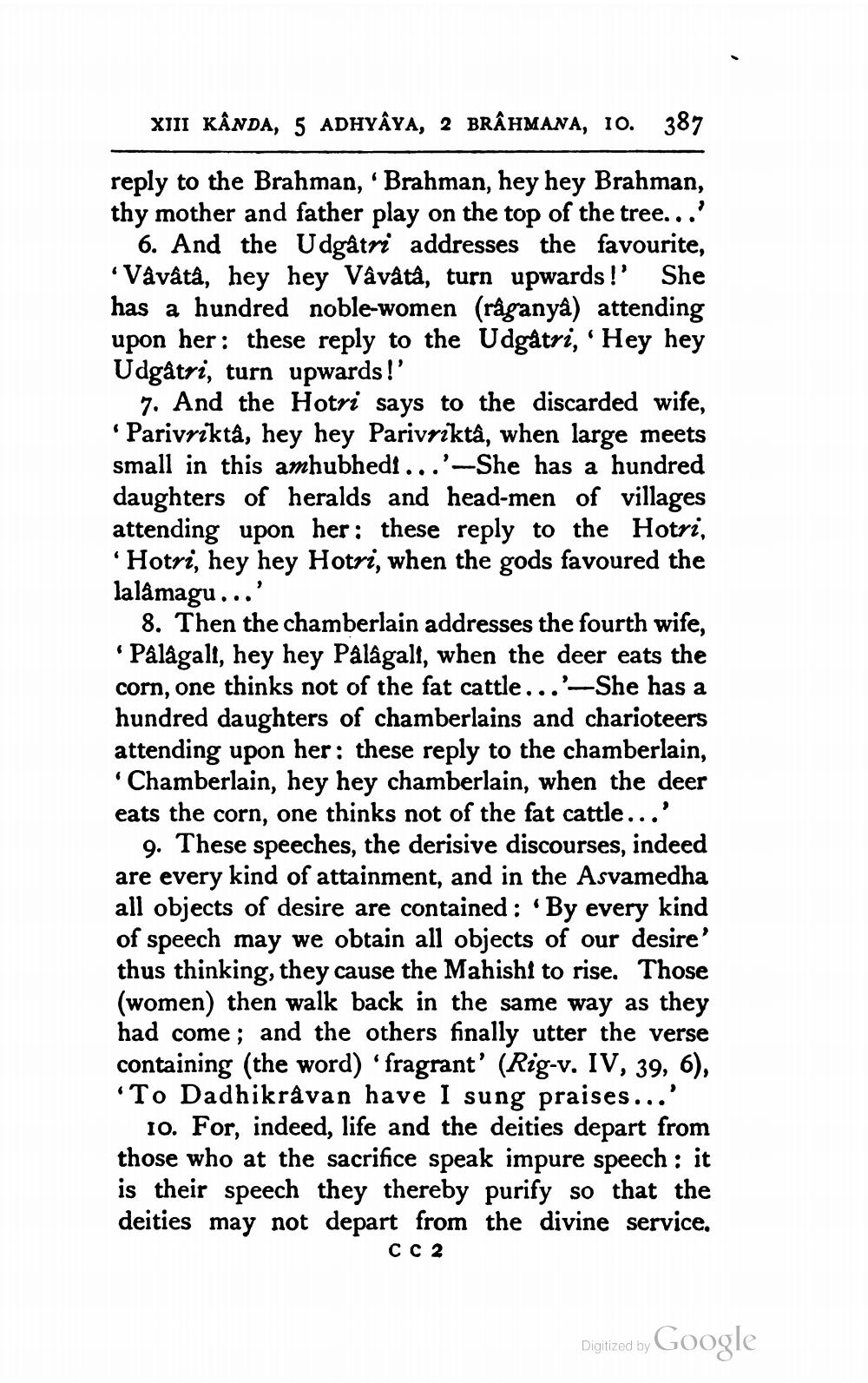________________
XIII KÂNDA, 5 ADHYAYA, 2 BRAHMANA, 10. 387
reply to the Brahman, Brahman, hey hey Brahman, thy mother and father play on the top of the tree...'
6. And the Udgâtri addresses the favourite, Vâvâtå, hey hey Vâvâtà, turn upwards !' She has a hundred noble-women (râganyà) attending upon her: these reply to the Udgåtri, 'Hey hey Udgåtri, turn upwards!'
7. And the Hotri says to the discarded wife, • Parivriktå, hey hey Parivriktà, when large meets small in this amhubhedi...'-She has a hundred daughters of heralds and head-men of villages attending upon her : these reply to the Hotri,
Hotri, hey hey Hotri, when the gods favoured the lalåmagu...'
8. Then the chamberlain addresses the fourth wife, Pålågali, hey hey Pålâgali, when the deer eats the corn, one thinks not of the fat cattle...'-She has a hundred daughters of chamberlains and charioteers attending upon her: these reply to the chamberlain,
Chamberlain, hey hey chamberlain, when the deer eats the corn, one thinks not of the fat cattle...'
9. These speeches, the derisive discourses, indeed are every kind of attainment, and in the Asvamedha all objects of desire are contained: By every kind of speech may we obtain all objects of our desire' thus thinking, they cause the Mahishi to rise. Those (women) then walk back in the same way as they had come; and the others finally utter the verse containing (the word) 'fragrant' (Rig-v. IV, 39, 6), "To Dadhikràvan have I sung praises...'
10. For, indeed, life and the deities depart from those who at the sacrifice speak impure speech : it is their speech they thereby purify so that the deities may not depart from the divine service,
CC 2
Digitized by Google




